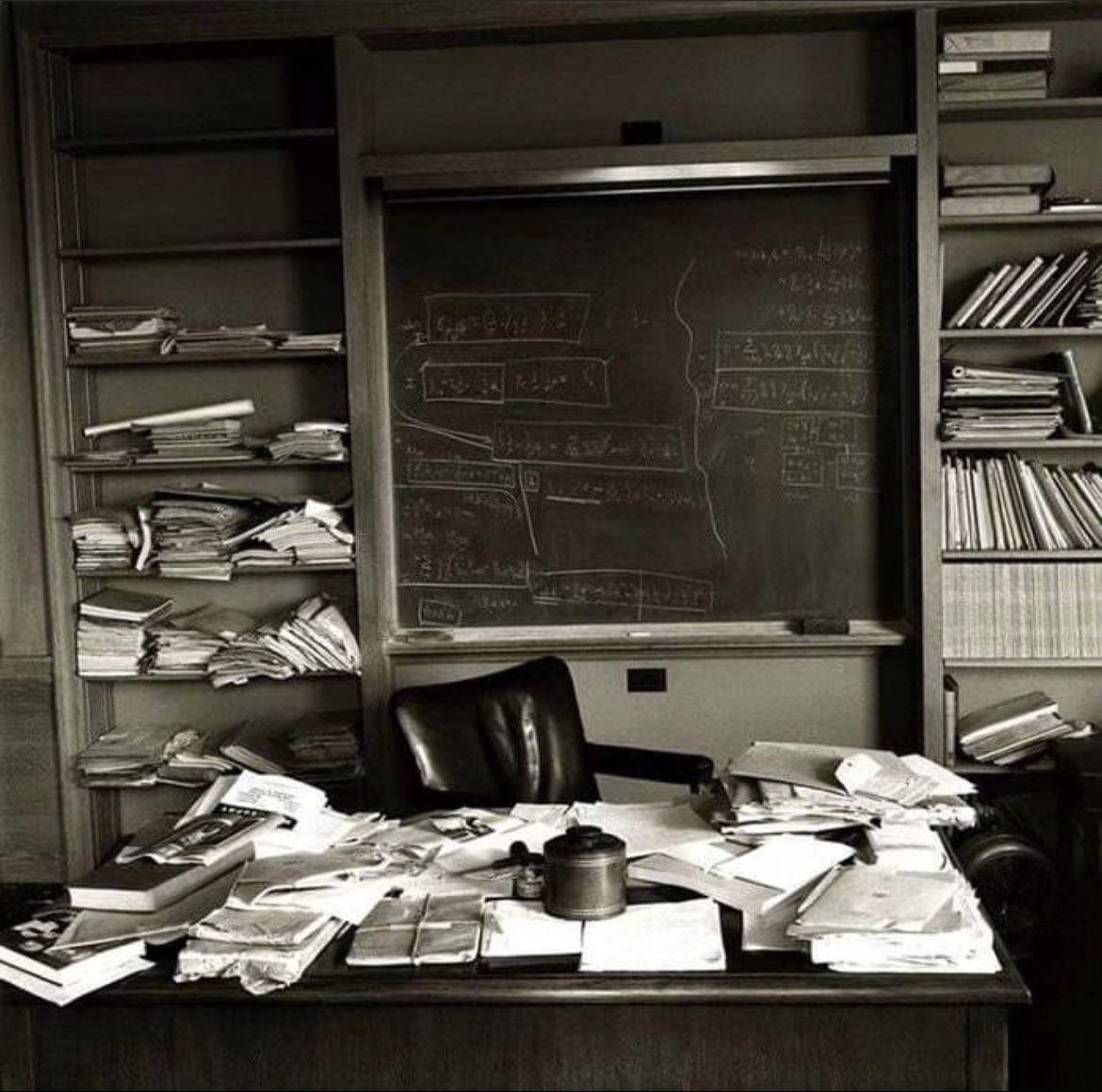Einstein's desk was photographed a day after his death, in 1955.
Albert Einstein was born at Ulm, in Württemberg, Germany, on March 14, 1879. Six weeks later the family moved to Munich, where he later began his schooling at the Luitpold Gymnasium. Later, they moved to Italy and Albert continued his education at Aarau, Switzerland in 1896 he entered the Swiss Federal Polytechnic School in Zurich to be trained as a teacher in physics and mathematics. In 1901, the year he gained his diploma, he acquired Swiss citizenship and, as he was unable to find a teaching post, he accepted a position as a technical assistant in the Swiss Patent Office. In 1905 he obtained his doctor’s degree.
Albert Einstein's office was left undisturbed just hours after the passing of the Nobel Prize-winning physicist, in Princeton, New Jersey, in April 1955.
Ralph Morse, a celebrated photographer for LIFE magazine, captured the untouched state of Einstein's office, freezing a moment in time. Within this room filled with books, papers, and chalkboards adorned with equations, one can find a poignant glimpse into the daily life of one of history's greatest minds.
Albert Einstein, whose groundbreaking theories shattered and reshaped our understanding of the universe, succumbed to heart failure on April 18, 1955, at the age of 76.
His funeral and cremation were deeply private occasions, and the sole photographer to document this extraordinary day was Ralph Morse from Life Magazine.
Armed with his camera and a bottle of scotch, which he used to open doors and ease conversations, Morse meticulously documented the passing of a 20th-century icon. Yet, apart from one iconic image of Einstein's office, preserved exactly as he left it, taken mere hours after his demise, the photographs Morse took that day remained unpublished.
At the request of Einstein's son, who sought privacy for the family during their period of mourning, LIFE's editors decided not to publish the entire story. For over five decades, Morse's images lay forgotten in the magazine's archives.
The genius was a lifelong pipe smoker, and some believe this contributed to Albert Einstein’s cause of death.
When World War I hit, Einstein publicly opposed Germany’s nationalist fervor. And as World War II brewed, Einstein and his second wife Elsa Einstein emigrated to the United States to avoid persecution by the Nazis.
By 1932, the strengthening Nazi movement had branded Einstein’s theories as “Jewish physics” and the country denounced his work.
The Institute for Advanced Study at Princeton University in New Jersey, however, welcomed Einstein.
Here, he worked and pondered the world’s mysteries until his death two decades later.




No comments yet
Be the first to share your thoughts!